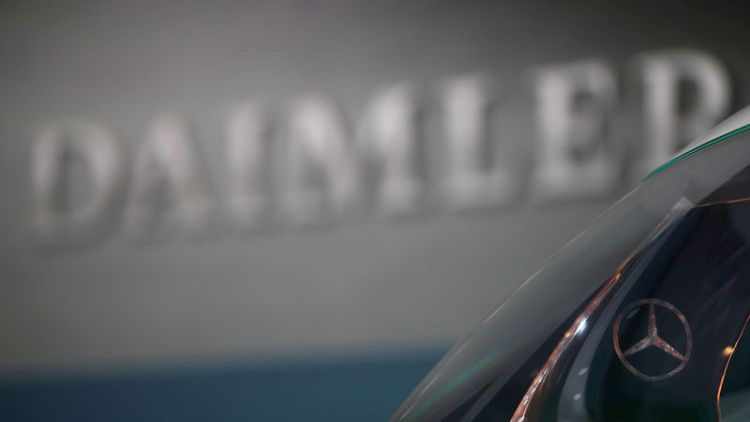SINDELFINGEN, Germany (Reuters) - Daimler <DAIGn.DE> is reviewing the product portfolio at its vans division, where sales have been hit hard by doubts about the cleanliness of diesel engined vehicles, Mercedes-Benz executive Marcus Breitschwerdt said on Tuesday.
"In order to optimise our performance, this also means reviewing and realigning our strategic orientation," Breitschwerdt, head of Mercedes-Benz Vans, said at the launch of an electric Mercedes-Benz van on Tuesday.
Daimler will seek cost-saving opportunities, including through a review of the company's' product portfolio, he said.
"We are looking at what we have and what we could have," Breitschwerdt said, adding that the X-Class midsize pickup truck was not delivering the sales volumes the company had hoped for.
"The X-Class is a niche product," the Daimler manager said at an event in Sindelfingen near Stuttgart. Furthermore Mercedes-Benz was not interested in entering the full-sized pickup truck segment, Breitschwerdt said.
He added that the vans division had too many management layers and the company was looking at ways to cut fixed costs without resorting to forced layoffs. Daimler's vans division employs 26,000 staff.
Mercedes-Benz launched the EQV, an electric van with a theoretical operating range of around 400 kilometres and the ability to charge the battery to 80% of capacity within 45 minutes, Daimler said.
The Mercedes-Benz EQV will hit showrooms in early 2020, the company said.
Breitschwerdt said he expected 15% to 25% of van sales by 2025 to be fully electric variants in the passenger segment and that he would consider diversifying the cell supplier base to ensure a sufficient supply of batteries as production ramps up.
Breitschwerdt also said that although autonomous driving was possible from a technological point of view, the business models for operating autonomous vehicles were not yet proven.
(Reporting by Edward Taylor; Editing by Michelle Martin)



